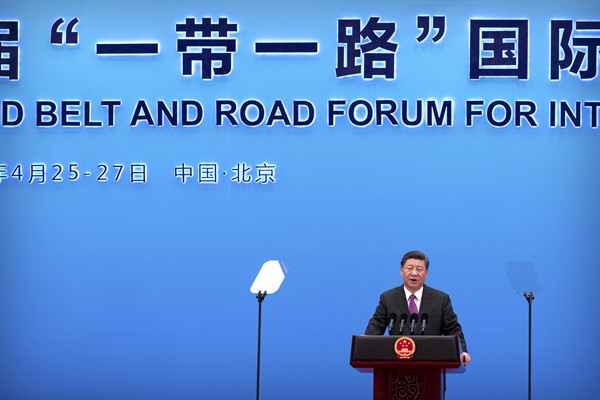The prevailing foreign assistance architecture of today’s world, which prioritizes transparency, inclusion and accountability, was developed and codified in a unipolar system—with significant U.S. leadership and influence. Since the end of the Cold War, Western donors have supported this framework, further developing and codifying it in the Millennium Development Goals of 2000; the 2005 Paris Declaration on Aid Effectiveness; the 2008 Accra Agenda, which built on the Paris Declaration; and the 2011 Busan Agreement to standardize good development practice, norms and standards.
This architecture is now coming under pressure, largely due to China’s growing interest in and influence over today’s predominant development paradigm: the United Nations Sustainable Development Goals, or SDGs. Beijing’s interest comes at a particularly important time, as the U.N.’s Agenda 2030—which calls for achieving all of the SDGs by that year—is looking further out of reach due to the coronavirus pandemic’s impact in low- and middle-income countries. COVID-19 is forcing the development community to take stock of current progress on Agenda 2030, while recognizing that the framework that succeeds it will be forged within the constraints of an increasingly competitive and multipolar world.
Chinese leaders know the SDGs matter. Their rhetorical leadership on this issue began in 2015, when President Xi Jinping, speaking at the U.N. General Assembly, called for aligning the goals with China’s flagship global infrastructure and development program, the Belt and Road Initiative, or BRI. The U.N.—where Chinese officials occupy an increasing number of top agency posts—has been broadly receptive to this idea, with Secretary-General Antonio Guterres saying in a 2019 speech in Beijing that “the United Nations is poised to support the alignment of the Belt and Road Initiative with the Sustainable Development Goals.”

